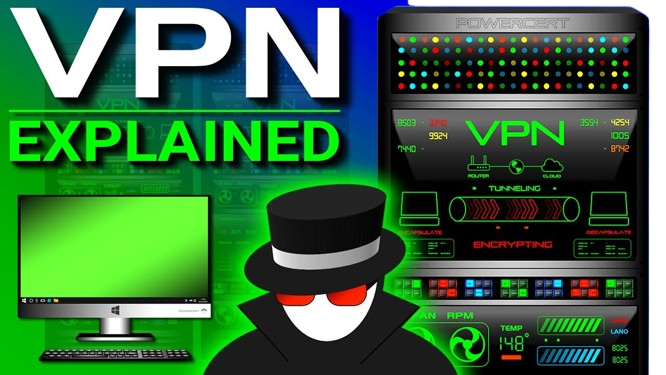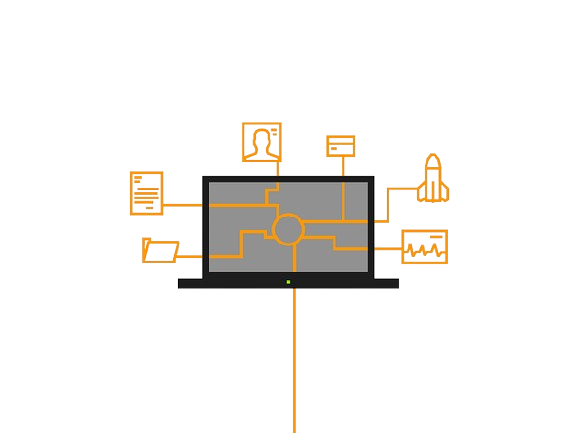
What is a VPN? Why Should I Use a VPN?
A VPN, or virtual private network, connects your computer to a remote server owned by a VPN provider. This creates a secure tunnel that hides your personal data, disguises your IP address, and lets you bypass website blocks and firewalls. This helps keep your online activities private and safe.
A VPN is:
- Virtual because it does not use physical cables.
- Private because no one else can see your data or browsing.
- Networked because it connects your device to the VPN server.
Now let’s look at why using a VPN can be helpful.
Why Should I Use a VPN Service?
Using a VPN offers many benefits, especially for those who want a safer and freer online experience. A VPN protects you by encrypting your data and hiding your IP address. This makes it hard for others to track your online activities and lets you access content that might be blocked in your area.
Here are some common reasons to use a VPN:
- Secure Your Data: Sensitive information like work emails and payment details can be easily tracked, especially on public networks. A VPN encrypts your data, making it unreadable to anyone without the encryption key. This keeps your browsing activities private.
- Work from Home: With more people working remotely, a VPN allows you to access company resources securely from anywhere. This means you can work safely even on public Wi-Fi.
- Access Regional Content: Some websites limit their content based on your location. A VPN changes your location so you can access content that might be restricted in your area.
- Bypass Censorship and Surveillance: In some places, certain sites are blocked or monitored. A VPN helps you bypass these restrictions and view blocked websites.
- Prevent ISP and Third-Party Tracking: Internet Service Providers (ISPs) can track your browsing history through your IP address. A VPN hides your IP address and prevents ISPs from tracking you.
Types of VPN Connections
There are various VPN types for computers and mobile devices, both free and paid. Here are some common types:
- Remote Access VPN (Client-to-Site VPN): Connects your device to a remote server or company network. Useful for remote workers needing access to company files or for browsing securely online.
- Site-to-Site VPN: Connects multiple internal networks across different locations. Best for large organizations needing secure communication between different sites.
- VPN Applications: Mobile VPNs connect your device to a private network via an app. Useful for mobile users needing secure connections on the go or with unstable internet.
How Does a VPN Work?
When you connect to a VPN, the VPN server creates an encrypted tunnel for your data. This data is scrambled into code that only the VPN server can read. The server then sends your data to the site you are visiting, along with a new IP address.
The security of a VPN depends on the protocol used. Here are some common protocols:
- OpenVPN: Offers strong security with 256-bit encryption and is widely used.
- SSTP: Secure and built into Windows, suitable for Windows users.
- IKEv2/IPSec: Good for mobile devices, maintains connections even with unstable internet.
- L2TP/IPSec: Another secure option, but many providers now prefer other protocols.
- PPTP: An old protocol with security issues, generally avoided.
- WireGuard: Newer, with modern encryption and good mobile compatibility.
How a VPN Protects Your IP Address
A VPN hides your IP address, making your online identity harder to trace. When you use a VPN, you get a new IP address from the VPN server. This new IP address can be shared with other users, making your activities less visible. Hiding your IP also helps bypass content blocks and protect against attacks.
How Secure is a VPN?
A VPN improves your online security but is not perfect. It does not protect against viruses and might not stop cookies from being used for ads. Security issues can still arise, so keeping your software updated is important. Choose a reputable VPN provider that uses strong encryption and does not log your activities.
What Does a Good VPN Do?
To choose a good VPN, look for these features:
- Strong Protocols: Use a VPN with industry-standard protocols like OpenVPN or WireGuard.
- IP Address Protection: Ensure the VPN can mask your IP address and allow easy server switching.
- A Range of Servers: More servers in different locations can improve speed and performance.
- Zero-Log Policy: The provider should not log your browsing activities.
- Kill Switch: This feature cuts off your internet if the VPN connection drops.
- Mobile Compatibility: Ensure the VPN works well on mobile devices.
- Options for Authentication: Look for multi-factor authentication for added security.
- Customer Support: Reliable support is important for resolving issues.
- Premium Pricing: Paid VPNs are generally more reliable and secure than free ones.
How Do VPNs Help with Identity Theft?
Identity theft is when hackers steal your personal information to commit fraud. Using public Wi-Fi makes you more vulnerable. A VPN helps protect you from identity theft by encrypting your data and hiding your IP address. This makes it harder for hackers to access your personal information and prevents them from targeting you.

Hi, I’m Chibuzor Abraham from Nigeria. I love technology, especially VPNs, which protect your online privacy. I manage Ohiovpn.us, where I review VPN services for Ohio. Our reviews look at speed, security, and ease of use to help you find the best VPN. If you buy through our links, we get a small commission, which helps support our site at no extra cost to you.

